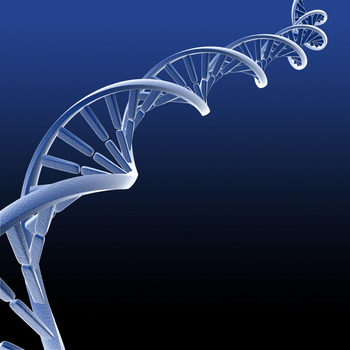Researchers Discover Genetic Link Between Both Types of ALS
 |
Researchers from Northwestern University Feinberg School of Medicine have discovered a link between sporadic and familial forms of amyotrophic lateral sclerosis (ALS), a neurodegenerative disease also known as Lou Gehrig’s disease.
Researchers found that a protein called FUS forms characteristic skein- like cytoplasmic inclusions in spinal motor neurons in most cases of ALS. Mutations in this gene have been previously linked to a small subset of familial ALS cases. Researchers thus linked a rare genetic cause to most cases of ALS, clearing the way for rational therapy based on a known molecular target. The study was recently published online in the Annals of Neurology.
ALS is a disease in which muscle-controlling nerve cells in the brain and spinal cord (motor neurons) die, resulting in rapidly progressive paralysis and death usually within three to five years of the onset of symptoms. Most cases of ALS are of unknown etiology and appear as sporadic ALS. About 5 to 10 percent of ALS cases are familial. Some forms of familial ALS are caused by genetic mutations in specific genes. Mutations in the Cu/Zn superoxide dismutase gene (SOD1) account for approximately 20 percent of familial ALS cases. Mutations in the TAR DNA-binding protein gene (TDP43) and FUS gene occur in about 4 to 5 percent of the familial ALS cases. Altogether, mutations in specific genes have been identified in about 30 percent of familial ALS cases.
In contrast to familial ALS, the etiology and the pathogenic mechanisms underlying sporadic ALS — 90 percent of all ALS — has remained largely unknown. Understanding the causes and pathogenic mechanisms of sporadic ALS is the major challenge in this disease.
For this study, researchers examined the post-mortem spinal cords and brains of 100 cases, 78 with ALS and 22 in a control group. They found FUS pathology in the spinal cords of all the ALS cases, except for a few cases with SOD1 mutations. But FUS pathology was not present in control cases without ALS.
“This is a game changer because it establishes a connection in the development of sporadic ALS with a known cause of familial ALS,” said senior author Teepu Siddique, MD, the Les Turner ALS Foundation/ Herbert C. Wenske Professor of the Ken and Ruth Davee Department of Neurology at Feinberg and a neurologist at Northwestern Memorial Hospital.
“Our finding opens up a new field of investigation for rational therapy for all of ALS,” Siddique added. “This is the holy grail of researchers in this field.”
“There hasn’t been a therapy for most of ALS, because the cause was unknown,” Siddique said. “Three genes have been identified in ALS, but the problem has been connecting inherited ALS to sporadic ALS.”
“We identified the FUS pathology in sporadic ALS and most familial ALS cases,” said Han-Xiang Deng, MD, PhD, associate professor of neurology at Feinberg and lead author of the paper. “The patients with the FUS pathology may account for about 90 percent of all ALS cases. Our findings suggest that pathological interaction of FUS with other proteins is a common theme in motor neuron degeneration in the vast majority of the ALS cases. We believe that this is a major step forward in formulating a common pathogenic pathway for motor neuron degeneration. Importantly, it may offer a novel avenue for developing therapies through targeting these FUS-containing inclusions.”
The one exception to the new finding is when familial ALS is associated with a mutation on the SOD1 gene. In those patients and in the mutant SOD1 transgenic mouse models, researchers did not find evidence of FUS pathology.
“This tells us that it follows a different pathway of pathogenesis, so treatment for this form of the disease would have to be different,” Deng said.
The study is supported by the National Institutes of Health, the Les Turner ALS Foundation, the Vena E. Schaff ALS Research Fund, the Harold Post Research Professorship, the Herbert and Florence C. Wenske Foundation, the David C. Asselin MD Memorial Fund and the Les Turner ALS Foundation/Herbert and Florence C. Wenske Professorship.






